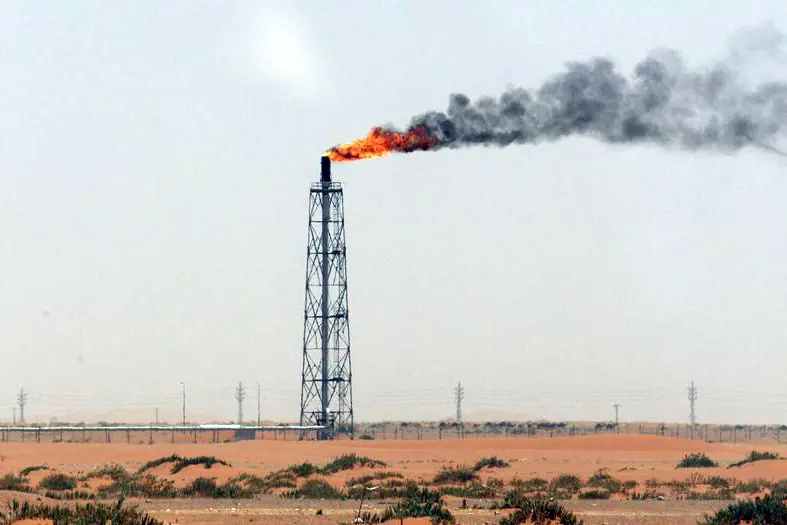PHOTO
31 August 2016
RIYADH: Saudi Arabia exported nearly 1.89 billion barrels of crude oil in the first eight months of the current year with proceeds amounting to SR279 billion, a drop of 27 percent compared to figures of same period last year, local media said quoting an economic expert.
Domestic consumption during the same period was expected to reach 642 million barrels, or 25 percent of the total output, Al-Riyadh daily said quoting Fahad bin Jumaa.
Jumaa said oil prices fluctuated between $40 and $43 per barrel at the beginning of August, where Brent and West Texas oil prices stood at $42.47 and $41.75, respectively, on Aug 10.
However, oil prices sharply rose following statements from Saudi Energy and Mineral Resources Minister Khalid Al-Falih on the possible freeze (stabilization) of oil production by the OPEC officials in their Algiers meeting on Sept. 26-28, he said.
Accordingly, Brent and West Texas oil prices rose by 21 percent and 18 percent to $50.88 and $49.11, respectively, on Aug 19. Later, oil prices registered a marginal drop to $50 for Brent and $47.31 for West Texas, Jumaa added.
He ruled out any stabilization of oil production in all oil producing countries with the exception of Saudi Arabia, adding that a production freeze will not lead to a price rise with the existence of the glut in oil supplies.
The oil expert expects that oil producing countries of high costs will increase their production with improvement in prices and then go back to the previous situation. Therefore, it is better to maximize the market share for the Kingdom and other OPEC members, he said.
OPEC sees the balance of supply and demand for its members in 2016 at 31.9 million barrels per day, with an increase of 1.9 million barrels compared to the previous year. It said demand on OPEC oil is expected to rise to 33 million barrels a day in 2017.
On July 18, the executive board of the International Monetary Fund (IMF) predicted a slow growth rate of fixed gross domestic product (GDP) at 1.2 percent in 2016, but poised to grow to 2 percent in 2017.
Therefore, the Kingdom's budget deficit is expected to drop by 13 percent of the GDP with the increase of non-oil revenues and cutbacks in spending, he added.
RIYADH: Saudi Arabia exported nearly 1.89 billion barrels of crude oil in the first eight months of the current year with proceeds amounting to SR279 billion, a drop of 27 percent compared to figures of same period last year, local media said quoting an economic expert.
Domestic consumption during the same period was expected to reach 642 million barrels, or 25 percent of the total output, Al-Riyadh daily said quoting Fahad bin Jumaa.
Jumaa said oil prices fluctuated between $40 and $43 per barrel at the beginning of August, where Brent and West Texas oil prices stood at $42.47 and $41.75, respectively, on Aug 10.
However, oil prices sharply rose following statements from Saudi Energy and Mineral Resources Minister Khalid Al-Falih on the possible freeze (stabilization) of oil production by the OPEC officials in their Algiers meeting on Sept. 26-28, he said.
Accordingly, Brent and West Texas oil prices rose by 21 percent and 18 percent to $50.88 and $49.11, respectively, on Aug 19. Later, oil prices registered a marginal drop to $50 for Brent and $47.31 for West Texas, Jumaa added.
He ruled out any stabilization of oil production in all oil producing countries with the exception of Saudi Arabia, adding that a production freeze will not lead to a price rise with the existence of the glut in oil supplies.
The oil expert expects that oil producing countries of high costs will increase their production with improvement in prices and then go back to the previous situation. Therefore, it is better to maximize the market share for the Kingdom and other OPEC members, he said.
OPEC sees the balance of supply and demand for its members in 2016 at 31.9 million barrels per day, with an increase of 1.9 million barrels compared to the previous year. It said demand on OPEC oil is expected to rise to 33 million barrels a day in 2017.
On July 18, the executive board of the International Monetary Fund (IMF) predicted a slow growth rate of fixed gross domestic product (GDP) at 1.2 percent in 2016, but poised to grow to 2 percent in 2017.
Therefore, the Kingdom's budget deficit is expected to drop by 13 percent of the GDP with the increase of non-oil revenues and cutbacks in spending, he added.
© Arab News 2016





















